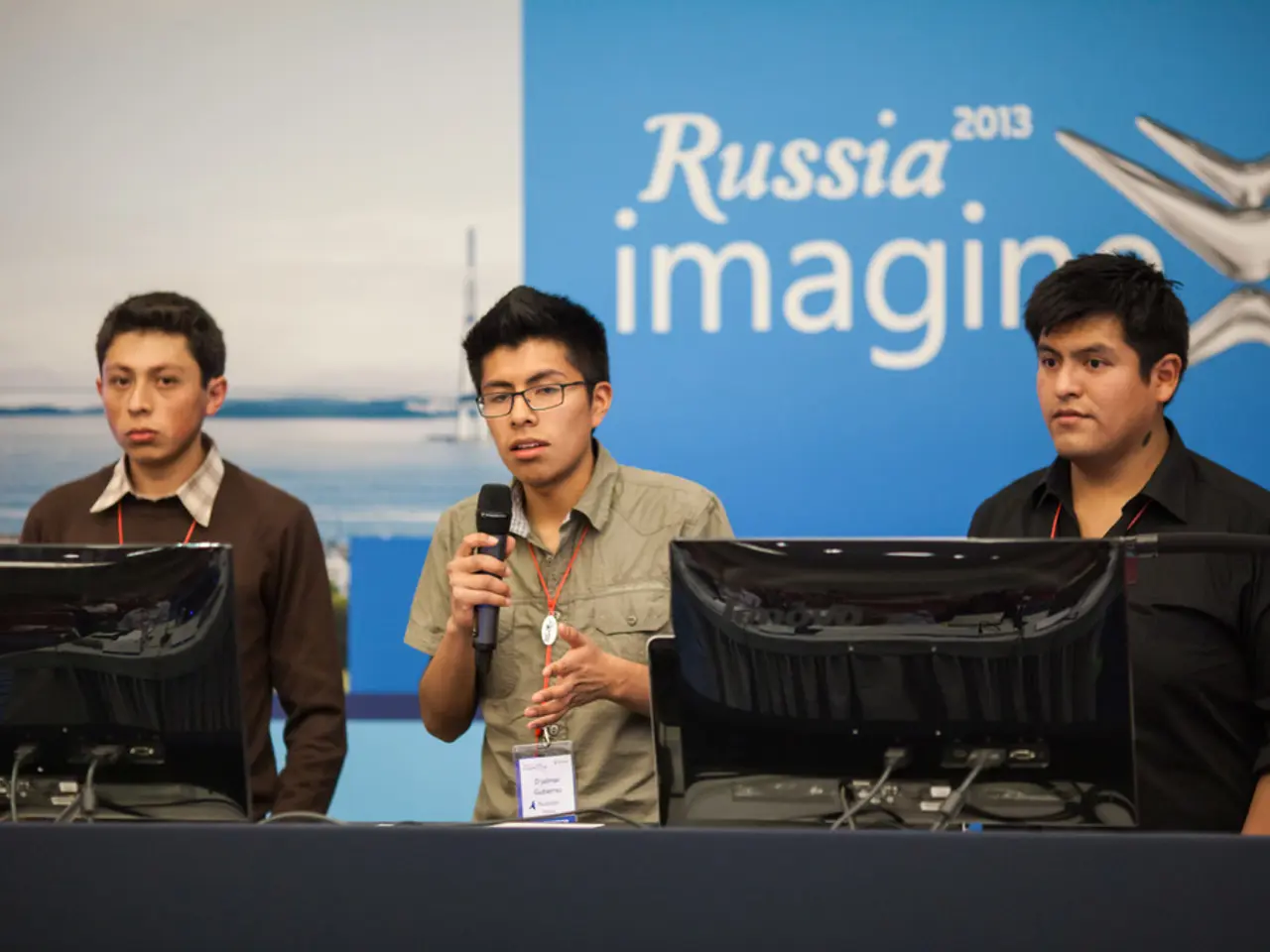Trump scheduled for a meeting with Putin
2025 Russia-United States Summit in Alaska Fails to Yield Peace Agreement for Ukraine
The much-anticipated 2025 Russia-United States Summit, held on August 15, 2025, in Alaska, concluded without a resolution to the ongoing Russia-Ukraine conflict. Notably absent from the talks was Ukrainian President Volodymyr Zelensky [1][2].
The summit's potential outcomes and implications are significant:
- No Ceasefire or Peace Agreement: The talks ended without a ceasefire agreement or any deal to resolve the war. Controversially, Trump suggested that Ukraine should cede territory to end the conflict, an idea rejected by Zelensky [1][2]. Without Ukraine's direct representation, prospects for a negotiation framework that would satisfy Ukraine were reduced.
- Strained Diplomatic Relations: The absence of Ukraine in the discussions created an effective bilateral Russia-US negotiation, potentially sidelining Ukraine and undermining their sovereignty and strategic interests. This could embolden Russia or pressure Ukraine to make concessions without a direct voice [1][2].
- Geopolitical Signaling: Putin's visit to U.S. soil, a military base in Alaska, symbolized a willingness under Trump to engage Russia with fewer preconditions, potentially signaling a shift in U.S. policy towards Russia [1][3][4].
- International Legal and Political Ramifications: Putin, who faces an ICC arrest warrant for alleged war crimes related to the Ukraine invasion, was not held accountable during the summit. The absence of Zelensky could complicate diplomatic efforts to hold Russia accountable and reinforce narratives around legitimacy and impunity [1].
The exact location and time of the meeting between Trump and Putin were not disclosed. Alaska, historically tied to Russian-American relations, was chosen as the summit venue due to its geographical proximity to Russia and its potential to avoid the involvement of third countries [5].
Prior to the summit, Zelensky categorically rejected any compromise on Crimea and the territories of Luhansk, Donetsk, Saporischschja, and Kherson [6]. Putin had rejected Zelensky's participation in the talks, focusing instead on bilateral Russian-American negotiations [7]. Russia expressed interest in discussing economic ties and strategic security, including nuclear arms control, with the US [8].
Trump and Putin had met several times during Trump's first term, but communication between the two had been limited since Biden took office [9]. Russia demanded that Ukraine give up its bid to join NATO and cede territories annexed in 2014, including Crimea [10].
The war in Ukraine, ongoing since 2014, has resulted in daily casualties and displaced millions of Ukrainians. The conflict remains a significant focus of international concern, with hopes for a peaceful resolution still unrealized.
[1] CNN: "2025 Russia-United States Summit: What you need to know" [2] BBC: "Alaska summit: Trump and Putin meet for first time in years" [3] The Guardian: "Trump's meeting with Putin in Alaska raises questions about US policy" [4] The New York Times: "Trump's Meeting with Putin in Alaska: What It Means for U.S.-Russia Relations" [5] Reuters: "Analysis: Why Alaska for the Putin-Trump summit?" [6] AP News: "Zelensky rejects any compromise on Crimea, separatist regions" [7] Associated Press: "Putin rejects Zelensky's participation in summit with Trump" [8] Financial Times: "Russia seeks economic ties and strategic security discussions with US" [9] Washington Post: "Trump-Putin communication limited since Biden took office" [10] RT: "Russia demands Ukraine give up NATO bid, cede annexed territories"
- The 2025 Russia-United States Summit, held without Ukraine's representation, failed to produce any peace agreements or ceasefire resolutions for the ongoing Ukraine conflict, highlighting the policy tension between the two superpowers in the realm of war-and-conflicts.
- The discussions at the summit, focusing on economic ties and strategic security, underscored the broader implications of politics and policy-and-legislation on general-news matters, such as the war-and-conflicts in Ukraine.








